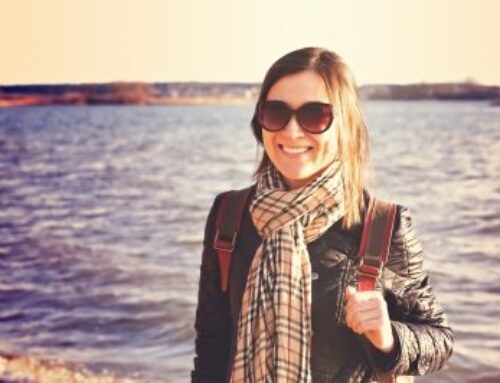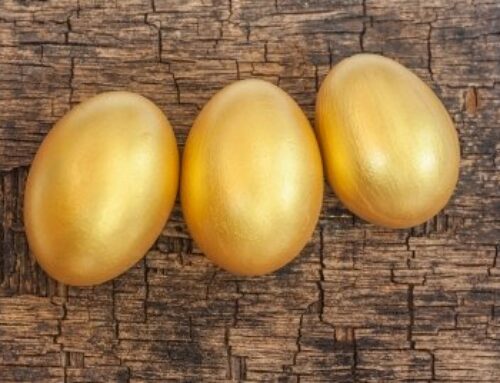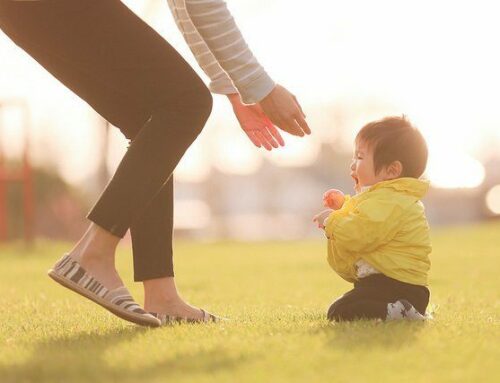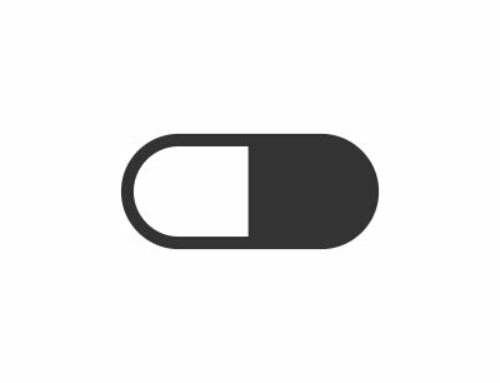Blond hair, blue eyes?
A fertility doctor explains what couples look for in an egg donor
Deciding to pursue egg donation is a very difficult decision to make. It can take years, and even then, after it happens, partners may not feel the same way about egg donation.
What often surprises during counselling sessions with clients is how often MEN are the ones who oppose going through egg donation with their partners and wives. As a biologist, I sometimes wonder why that is the case? Is it not the WOMEN who should feel the resistance? Should men not be more willing to participate in egg donation because the resulting child will technically be genetically his own?
I was so puzzled buy this that I took a chance during a conference which recently took place in Berlin to speak to Dr. Zaytseff, a fertility doctor from the O.L.G.A. Fertility Clinic in St.Petersburg in Russia, about this and many other tricky questions surrounding the egg donation process.
My sincere “thank you” to Dr. Zaytseff for being honest and telling certain truths which don’t get to be told often in this kind of conversation.
DW: Dr. Zaytseff, what is it that couples look for in an egg donor?
Dr. Zaytseff: The attributes that couples look for in a donated egg often depend on where they come from. In European cultures, there is a superficial kind of modesty when people say, “it’s only important that the child is healthy”.

Dr. Olga Zaytseff
But, when we dig deeper in a dialogue with a recipient, this woman will actually, within 10 minutes, give you a list of hundred different parameters which are actually important to her. In fact, women are quite picky about the choice of the genetic material for their future child.
Just think about WHY the majority of childless women are childless on the first place? Why is it that they have postponed their pregnancies? Mainstream media tells us they have delayed motherhood because of their career, but the truth is that they have delayed pregnancy because they haven’t met the right partner along the way. And, why haven’t they met the right man? Because they are picky and selective just as non-single women are, therefore they didn’t want to drag someone in bed just to get pregnant! So, it is perfectly understandable that these same women are picky and selective when choosing egg donors.
We believe it is in the deep nature of women as potential mothers to wish the best for their future children, and choosing good genetic material in an egg has a lot to do with this responsibility and selectivity as a WOMAN. This is the reason why we opened a database where all kinds of information about egg donors can be found.
It is perfectly understandable that women are picky and selective when choosing egg donors. Choosing the best genetic material in an egg has a lot to do with the responsibility and nature of being a WOMAN.
DW: What kind of information do you provide about your egg donors?
Dr. Zaytseff: We understand that when a woman sees a photograph of another adult woman, it is something that can stay in the back of her mind and potentially traumatise her or hurt the relationship with her future child.
This is the reason why we don’t post adult photos in our online database. There are photos of egg donors, but they are from their childhood so that women can easily associate this image with the way their own child will look in the future.
We also have pictures on which our egg donors are 10 or 12 – young adults with no social or other makeup that people acquire depending on the environment they grow up in. This means that potential parents get very genuine impressions about the looks of their donor. It is, of course, also possible to see pictures of egg donors as adults as we have the written consent of donors to share their photos with the recipients, but they’re released only after they have talked with our psychologist and our egg donation team leader.
DW: One of your coworkers mentioned you having a comprehensive database with about 5,000 egg donors! How would you describe your typical donor?
With my personal recommendation: OLGA Fertility Clinic – online Seminars
Ladies, here you can learn all about egg donation and embryo adoption, embryonic and maternal reasons for pregnancy losses, and IVF for patients over 40 etc. All webinars are of course free of charge, register here:
https://olgafertilityclinic.com/en/events/
DW: One of your coworkers mentioned you having a comprehensive database with over 5,000 eggs/donors? How would you describe your typical donor?
Dr. Zaytseff: I’ve work with international egg donation and other infertility patients for 15 years and most of them come to us through the recommendation of their friends and our former patients.
We are located in St. Petersburg, around 200 km from Finland, which is very North of Europe. Traditionally, the population in St. Petersburg is rather blonde with blue and grayish eyes, so patients who come from Northern Europe and Germany (if they are themselves blue or gray eyed and blonde) have an advantage in using our donor database compared to, say, using a donor database in Spain where brown eyed and hair phenotypes are more common.
Over the years, our clinic became very attractive for educated and pragmatic couples who are thinking ahead about how they will someday tell the child and the environment about the way their child was conceived.
How to tell your child about egg donation?
DW: Because this kind of information is something that should be shared with a child, is that the way you see it?
Dr. Zaytseff: When couples come to us, they want to have the freedom of whether to tell the child and the environment (or not), and having a child that looks similar to the woman who gave birth will give them time to sort things out before they make their decisions. Couples want to have their choices and parents want their children to look like them – that is normal.
We have happy and satisfied families as a result of egg donation in our clinic. We are always chosen by those who feel that it is not the infertility that controls them, but them who control the difficult constellation in life.
DW: I know that many women in Germany don’t tell their child that they are a result of egg donation. Personally, this shocks me because, as a biologist and a woman, I feel that this kind of information has to be shared with the child because everyone has the right to know who he or she is.
Dr. Zaytseff: And yet it’s important to give couples a choice. In our clinic, couples have sessions with our psychologist, not because we would tell them what they have to do, but because they have to come to an understanding what is acceptable and applicable for them. This depends on many factors – environment, education, psychological background, and even a child’s character. A different approach is needed for every child. What is important for us is that we give as much information to the couples so that they understand they are in control of the situation. We also help them later on and give them an option of consulting our psychologists together with their children. Essentially, we don’t say “goodbye” after a positive pregnancy test.
DW: How do you recommend that couples start this sort of conversation with their children?
Dr. Zaytseff: What our psychologists recommend is that you don’t make a big deal out of it. Wait for the moment when your child asks you how they came to life and where they came from. At that moment, you can say something like,“Oh you came from a magic egg”, or,“your mum brought an egg from a wonderland” – it’s these little answers that answer the question at first. As a parent, you have to answer these questions anyway!
Additionally, children born in a more natural way ask the same questions and it is much more difficult to explain to them how me and my husband did it in bed than to tell about a beautiful, magical test tube, isn’t it? For a child, it’s all the same new, unknown world – it’s adults who decide how to present it.
To all couples and single women considering egg donation: we offer our introductory package of three consultations via Skype to introduce you with the moral, ethical, social and emotional perspective of the process, please check later also here: https://eggdonorchoice.com/introduction-into-egg-donation-concept/
DW: Do you have many patients from North of Europe?
Dr. Zaytseff: We have many patients coming from Scandinavian countries. There, IVF treatments are standardised and women get the same protocol and same stimulation again and again. Many women who come to us from Scandinavian countries, given that they are under 43, can still get pregnant with their own eggs! Patients from Germany, to take another example, have mostly exhausted all opportunities at home because they get very individualized and thoughtful fertility care in Germany, so when they come to us, there is nothing but egg donation left.
Traditionally, the population in St. Petersburg is rather blonde with blue and grayish eyes, so patients who come from Northern Europe and Germany (if they are themselves blue or gray eyed and blonde) have an advantage in using our donor database compared to, say, using a donor database in Spain where brown eyed and hair phenotypes are more common.
DW: Apart from photos, what other information can couples know about their donors?
Dr. Zaytseff: There are all kinds of physical and phenotypic descriptions and differences that we disclose. This is different from many other countries where this sort of procedure is totally anonymous.
We actually created our database based on the questions that our clients demanded from us over the years. As far as I know, there is no other database like this in Europe that gives such a profound information about egg donors.
We even have egg donors’ motivational letters in handwriting in which they explain who they are and why they became donors.
This is an important piece of information for our patients since it is through these letters that they can understand their donor’s personality better than just by looking at their physical characteristics. Our patients very much appreciate this opportunity of having a full picture of an egg donor as a person. We could not be more happy and proud of our donors – today, out of 50 people in our team, 12 are former egg donors!
In the US, there exist similar egg donor databases but with one important exception – it is hard to find blue eyes and blonde hair because the US is a mixed country with much more genetic diversity. For patients from Sweden or Germany, I think we’re the only clinic where they can easily find their recessive phenotype.
You can find our egg donor catalogue with profiles and childhood photos here:
Egg Donor Database with Pictures and Profiles
DW: How would you describe your typical donor?
Dr. Zaytseff: In Russia, we finish secondary education at the age of 17 and we don’t have this tradition of going abroad, travelling, or taking time off before studying. Therefore, many young women finish university by the age of 22. We also still have a conservative tradition around getting married and having children early in life – that’s why many young women already have children at the ages of 23-24.
Most of our donors are married and have two children, and 70% of them have university education. On the other hand, our patients are mostly career-motivated and have spent years and maybe decades on self-improvement.
DW: Is egg donation then anonymous or not?
Dr. Zaytseff: Egg donation is anonymous in the sense that donors do not disclose their passport numbers or their address, but with their handwriting, their photos, and everything else that we share with our patients, I don’t consider it to be an anonymous process.
DW: Is it possible for patients to bring their own donors?
Dr. Zaytseff: Sometimes we have patients who bring their own donors – mostly a sister or a friend – but we prefer to work with donors who have children of their own. We believe that only in this way are egg donors able to understand the value of donation and the meaning of the process.
So, if there is a sister who is young and wants to donate but doesn’t have children on her own, we will offer her consultations with our psychologist and fertility specialists about the process and medical and psychological risks and if she still would like to donate her eggs for her friend/sister, we will probably recommend her to freeze half of her collected eggs for future personal use and to donate the other half. This social egg freezing for the donor can at least try to justify some of her risks related to hormonal stimulation and egg retrieval without having completed her own family plan yet.
DW: Why do some women choose to donate their eggs? How they come to this idea on the first place?
Dr. Zaytseff: It takes a special kind of person to donate eggs. Donors are, of course, financially compensated because not compensating their exeptional effort would not be right, but it is mostly human motivation that drives them.
That particular subgroup of women who wish to donate eggs are happy to do so. Clearly, not every type of person who can be an egg donor. For example, we often recruit our donors in the places where women who are already mothers meet to chat and exchange experiences, talk about the needs of their babies etc.
So, these women obviously have enough time to meet and chat – their financial status is fairly good because it is their husbands who work during that time. We introduce ourselves to them and inform them that there are women who desperately want to have children, and this is often a completely new reality for them! Only those women who have such a psychological profile that they feel a calling to share and give will come back to us and only then we might proceed to work with them.
But even then, they will be subjected to all kinds of medical and gynecological tests. There’s actually a lot of work involved for many people to find a great egg donor.
DW: Thank you for sharing this important information!
You can visit Olga and her team at O.L.G.A. Fertility Clinic
Zagorodnyi Avenue 18/2 (the entrance from Razezjaya street 2)
Saint Petersburg, Russia, 191002
Phone +7 931 597 6542 (+WhatsApp)
info@olgafertilityclinic.com
olgafertilityclinic.com
eggdonorchoice.com
O.L.G.A. egg donor database you can find here: Egg Donor Database with Pictures and Profiles







